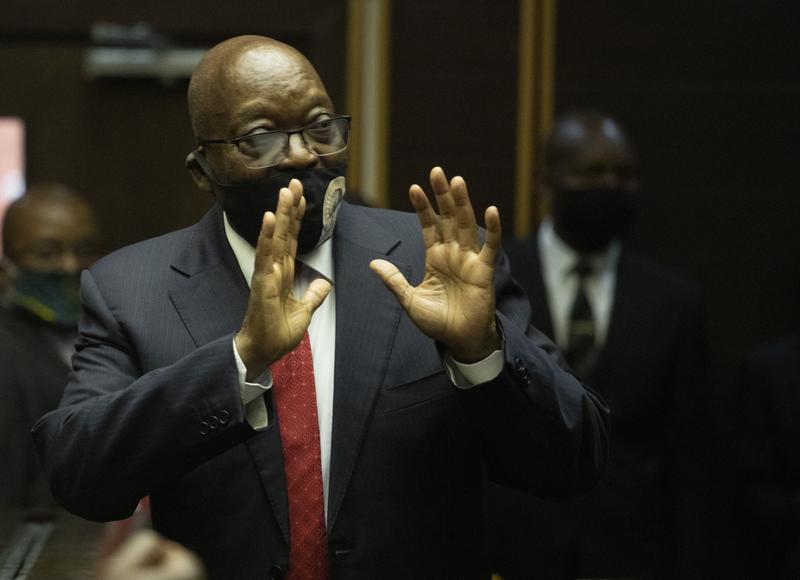 Former South African President Jacob Zuma arrives at the High Court in Pietermaritzburg, South Africa, June 23, 2020. Zuma faces charges of corruption, money laundering and racketeering related to a 1999 arms deal. (KIM LUDBROOK / AP)
Former South African President Jacob Zuma arrives at the High Court in Pietermaritzburg, South Africa, June 23, 2020. Zuma faces charges of corruption, money laundering and racketeering related to a 1999 arms deal. (KIM LUDBROOK / AP)
JOHANNESBURG - South Africa’s former president Jacob Zuma appeared in court on Tuesday to face multiple charges of racketeering, fraud, corruption and money laundering, as a decade-old trial delayed by procedural bickering resumed.
Zuma is being tried on 16 charges relating to a US$2 billion arms deal with French defence firm Thales in 1999, when Zuma was deputy president
Zuma is being tried on 16 charges relating to a US$2 billion arms deal with French defence firm Thales in 1999, when Zuma was deputy president.
The charges were reinstated in March 2018, a month after the ruling African National Congress (ANC) party kicked him out of office after a presidency marked by graft allegations and sovereign credit rating downgrades.
The former leader, in power between 2009 and 2018, rejects all allegations as a politically motivated witch-hunt. But the case is a rare example of an African judicial system seeking to prosecute a former leader for alleged wrongdoing.
ALSO READ: South Africa's Zuma to deny permanent stay of corruption charges
Zuma wore a dark grey suit at the court in Pietermaritzburg and looked tense, frequently clicking his jaw.
Much of Tuesday’s pre-trial hearing was focused on fixing a date for the trial to continue after multiple efforts by Zuma to cancel or delay it.
Judge Dhaya Pillay did not set a date for the trial proper to start. She adjourned the proceedings until Sept 8.
The court in November rejected Zuma’s application for a permanent stay of prosecution, and in February issued an arrest warrant for him.
Zuma is accused of accepting 500,000 rand (US$34,000) annually from Thales from 1999, in exchange for protecting the company from an investigation into the deal.
READ MORE: French arms firm to appeal Zuma corruption charge ruling
Thales, known as Thompson-CSF at the time, has said it had no knowledge of any transgressions by any of its employees in relation to the award of the contracts.


